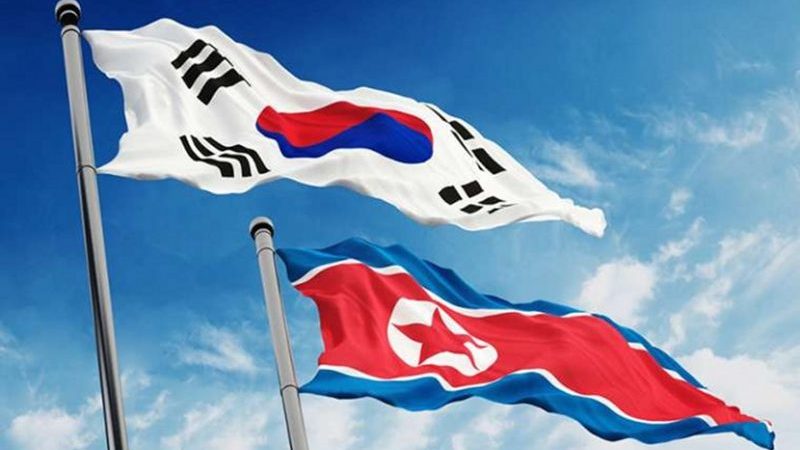The Korean Peninsula: A Complex Landscape Demands Diplomatic Solutions – OpEd

Northeast Asia occupies a unique position in the geopolitical landscape, conferring substantial influence on historical events and current developments in the Korean Peninsula. This underscores the pivotal role of diplomacy in conflict resolution and the attainment of enduring peace. Enhanced connectivity and mutual understanding between nations harbour the potential to foster comprehension and alleviate tensions on the Korean Peninsula.
If President Trump secures a second term, the likelihood arises for a potential reinstatement of his "maximum pressure" policy aimed at dismantling North Korea's nuclear programme. This policy entails the imposition of stringent economic sanctions alongside the maintenance of a formidable military presence. President Trump has furthermore established a cordial rapport with North Korean leader Kim Jong Un, commencing with the Singapore Summit in 2018. Nonetheless, it is imperative to recognise the significant absence of former South Korean President Moon Jae-in from the summit. President Moon has staunchly advocated for engagement and diplomacy with North Korea. The absence of President Moon hinders the comprehensive representation of all three principal actors on the Korean Peninsula: the United States, South Korea, and North Korea. The engagement of all three parties presents an auspicious opportunity for the alleviation of tensions on the Korean Peninsula.
Over time, Russia and China have exerted significant influence on the Korean Peninsula through both supportive and critical stances towards North Korea. These nations possess a track record of conflict resolution and provision of economic assistance. However, present challenges for Russia and China entail effectively managing their relationship with North Korea while concurrently upholding regional security and stability and safeguarding their economic interests in the area.
Russia envisions economic opportunities and a tranquil neighbour, as it shares extensive energy reserves with North Korea. Conversely, China serves as North Korea's primary economic lifeline and seeks a stable peninsula. Nonetheless, China also harbours concerns regarding nuclear weapons proliferation and the potential exacerbation of a refugee crisis where the North Korean regime to collapse.
The successful resolution of challenges on the Korean Peninsula necessitates a comprehensive approach that encompasses diplomacy, economic incentives, and security assurances. This inclusive strategy entails the involvement of various nations, such as the United States, North Korea, South Korea, Russia, and China, as all possess vested interests in the stability of the peninsula. Neutrally disposed countries, like members of ASEAN or Sri Lanka, Indonesia, and India, can additionally assume significant roles in facilitating dialogue and mediation efforts.
The Korean Peninsula is a prime example of the intricate nature of international relations and the crucial role diplomacy plays in resolving conflicts. President Donald J. Trump's unorthodox approach underscores the necessity of both applying pressure and personally engaging with the North Korean regime to influence their behaviour. Nevertheless, the involvement of Russia and China, as well as the absence of President Moon at the Singapore Summit, highlight the difficulties inherent in regional diplomatic processes.
In this particular context, achieving the convergence of all relevant parties and establishing trust and cooperation are imperative for resolving the conflict on the Korean Peninsula. Ongoing multilateral dialogue and the involvement of mediating nations are necessary to this end. Rather than resorting to military options, it is essential to seek sustainable and peaceful solutions that address the root causes obstructing the prosperity and peace of the Korean people. By eschewing reliance on military means and discovering peaceful avenues to reunite the nation, we can strive towards an enduring sense of stability and prosperity on the Korean Peninsula.
To conclude, the Korean Peninsula serves as a prime illustration of the intricate dynamics at play within international relations. Deep-seated historical issues, underlying geopolitical tensions, and internal political divisions all pose obstacles to achieving peace and stability in the region. Nevertheless, diplomacy remains an indispensable tool in navigating these complexities. It facilitates effective communication, fosters trust, and presents opportunities for forging a shared path towards a more tranquil future.
The opinions expressed in this article are the author's own.
References:
- Kim, Chum-kon. The Korean War, 1950-53. Seoul: Kwangmyong Publishing Co., 1980.
- Kim, Dong-Choon. The Unending Korean War: A Social History. Larkspur, Calif.: Tamal Vista, 2009.
- Goncharov, Sergei N., John Lewis, and Xue Litai. Uncertain Partners: Stalin, Mao, and the Korean War. Stanford, CA: Stanford University Press, 1993.
- Christensen, Thomas J. Useful Adversaries: Grand Strategy, Domestic Mobilization, and Sino-American Conflict, 1947-1958. Princeton, NJ: Princeton University Press, 1996.
- Kim, Deok. "Communist China's Intervention in the Korean War." Korean Affairs 2:2 (1963): 212-221.
- Kim, Dong-Choon. “Beneath the Tip of the Iceberg: Problems in Historical Clarification of the Korean War.” Korea Journal 42:3 (Autumn 2002): 60-86.
- Kim, Gye-Dong. "Who Initiated the Korean War?" In James Cotton and Ian Neary, eds. The Korean War in History. Manchester, GB: Manchester University Press, 1989.
- Park, Hong-Kyu. "American Involvement in the Korean War." The History Teacher 16 (February 1983): 249-263.
- Goldstein, Steven M. “Chinese Perspectives on the Origins of the Korean War: An Assessment at Sixty.” International Journal of Korean Studies 14:2 (Fall-Winter 2010): 45-70
